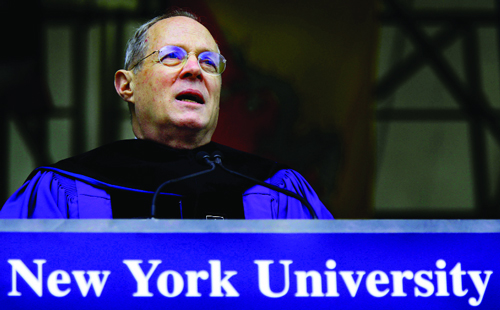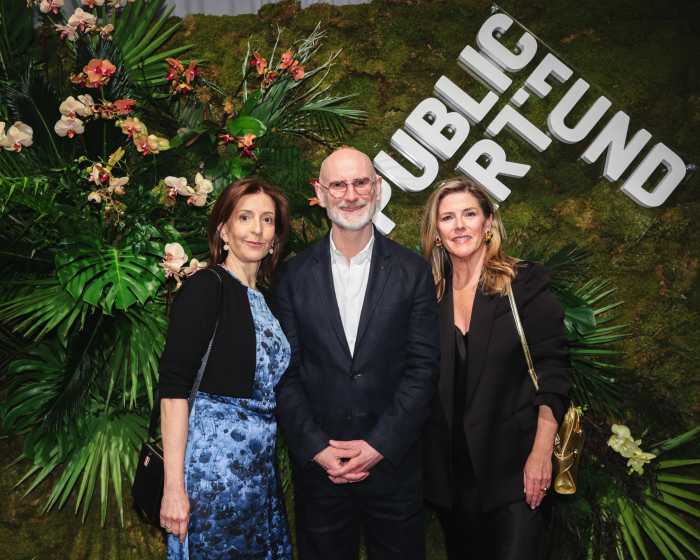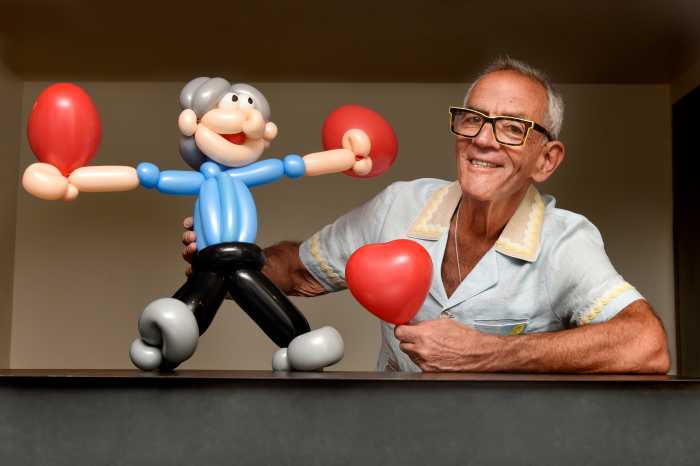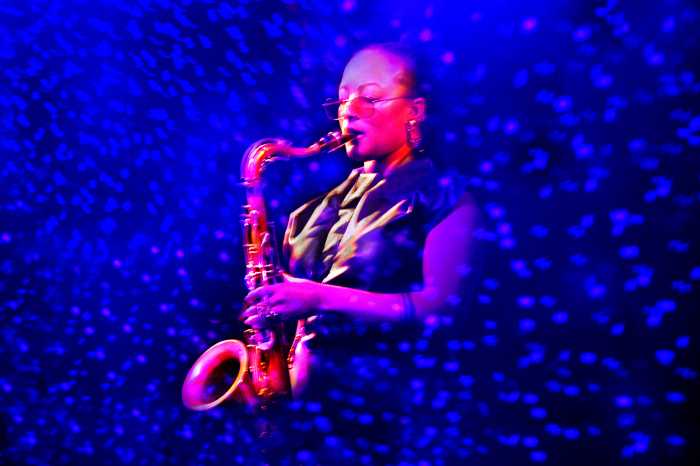By Lincoln Anderson
Supreme Court Associate Justice Anthony Kennedy addressed the graduates during New York University’s 174th commencement in Washington Square Park.
Beneath overcast skies, New York University last Thursday held what could be its last commencement in Washington Square Park before a planned $16 million renovation overhauls the historic park’s familiar geography.
Wearing their signature purple graduation gowns, 15,000 graduates filled the square’s central plaza on chairs set up for the occasion, with thousands more family members and friends sitting behind them in the eastern part of the park.
Commencement speaker U.S. Supreme Court Associate Justice Anthony Kennedy was introduced by N.Y.U. President John Sexton as a man with an “utter lack of pretentiousness [which] has earned the esteem of all.”
Kennedy talked about spreading the message of peace and understanding, and said it was up to the students to do a better job of this than is currently being done.
“America is not just a place, America is an idea — the idea of freedom,” he said. “Hundreds of millions around the world are watching us to see if freedom works, and they are skeptical. The verdict is out. The jury is skeptical.”
America must show that within freedom are compassion and tolerance — by helping countries in desperate conditions, Kennedy stressed.
“America…must show its bona fides,” he said. “There’s hunger. There’s thirst. There’s rape. There’s mutilation. There’s human enslavement. And this has to stop.”
Kennedy spoke of troubled spots in Africa, such as Darfur, where genocide is occurring, and Uganda, where, he said, young girls are enslaved and young boys are “cannon fodder.” In some places, he noted, African women must spend six hours a day to fetch drinkable water for their children.
“This isn’t rocket science. You must fix this,” he said.
Americans should not see foreigners as stereotypes and vice a versa, he said.
“Behind every stereotype, there’s a man who wants respect,” Kennedy explained. “You hear a lot about national security — but the best security is in the world of ideas.”
Student speaker Chinaka Hodge of the class of ’06 lamented the violence and guns that claimed five of her friends during her time at N.Y.U. A former National Youth Poetry Slam champion, she spoke powerfully “of the incredibly disposable quality of black life — in New Orleans, Darfur, the West Bank, Port-au-Prince.”
Hodge noted that at N.Y.U. — which Sexton emphasized is “a school in and of the city” — her education included “a taxi ride, a blackout, a transit strike, a Gray’s Papaya hot dog.
“Be committed, be knowledgeable. Put your knowledge to good work,” Hodge exhorted her classmates. “You may begin — now.”
Besides Kennedy, other honorary degree recipients included dancer Mikhail Baryshnikov, Xerox C.E.O. Anne Marie Mulcahy, writer/filmmaker Alain Robbe-Grillet and N.Y.U. donor Wilma “Billie” Stein Tisch, whose foundation gave $2.5 million to move, restore and rename the park’s fountain the Tisch Fountain.
Before Kennedy talked, a New York Police Department helicopter circled over the park three times, swooping lower each time. The graduates cheered and waved their ThunderStix and pennants, but no one seemed to know what the helicopter was doing.
Detective Mike Singer, Sixth Precinct community affairs officer, said the precinct also didn’t know what was going on with the chopper, though he said he knew there were federal marshals at the commencement because of Kennedy.
The traditional jumping into the fountain after graduation was foiled by four pranksters who dropped detergent containers in the water, which quickly filled with suds.
Commencement was previously scheduled for Shea Stadium because of the park renovation. But when the project’s start was delayed, the ceremony was returned to the park. According to a member of President Sexton’s office, after the planned renovation, because the new expanded lawns will be so carefully protected — “like the Great Lawn” in Central Park, she said — there will be 4,000 fewer seating spaces for commencement.
After commencement had ended, a sound permit was activated for a rally for N.Y.U.’s graduate student teaching assistants union on Sullivan St.
“This is when N.Y.U. puts its message out,” said Susan Valentine, a leader of the union, GSOC/U.A.W. Local 2110. “This [strike] is the biggest thing that happened this year on campus. We think it would be appropriate to recognize this.” Nearby a protester wore a graduation robe, an oversized papier-mache Sexton head and a sign saying “union buster.”
Speakers at the rally included State Senator Tom Duane; Roger Toussaint, Transport Workers Union president; Randi Weingarten, United Federation of Teachers president; author Barbara Ehrenreich and UNITE! officials.
“Six months is a long time for a community to be on strike,” Toussaint said. “It’s much more than the 10 days I spent in jail…. I understand Sexton recently said, ‘Don’t expect N.Y.U.’s position to change in the next 10 years.’ Well, don’t expect the union’s position to change in the next 10 years.
“Keep the fight up,” Toussaint encouraged. “The entire working class is behind you.”
Weingarten said of the labor dispute, “This fight in this world-class institution is really ground zero. An institution like N.Y.U. should know better, should not follow the path that the Bush Labor Relations Board has set.”
Noting Sexton attended Jesuit schools, Father Mark Hallinan said, “Dr. Sexton is in direct violation of the teachings of the Catholic Church on social justice — after all those years in Jesuit schools.”
Julia Schleck, a newly minted English literature professor, still wearing her gown and mortarboard, noted other schools like Columbia and Yale are closely watching developments at N.Y.U.
“We are leading academia,” she declared, “and we are leading America — and we will win.”
When they first walked out, 600 G.A.’s were on strike. Valentine, a fourth-year graduate student with two years left for her medieval studies Ph.D., said 200 graduate teaching assistants, or G.A.’s, continued striking through the spring semester, while 23 G.A.’s were fired after their departments confirmed they were on strike.
Although the university is setting up a graduate students organization, Valentine said they want a union with bargaining power and a new contract.
“We have no agency in shaping this,” she said of what N.Y.U. is offering. “We don’t see it as a vehicle for advancing our labor rights here.”




































